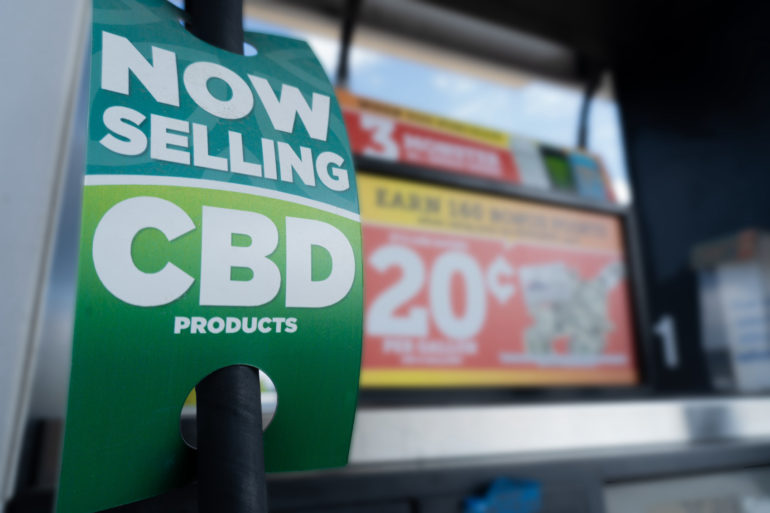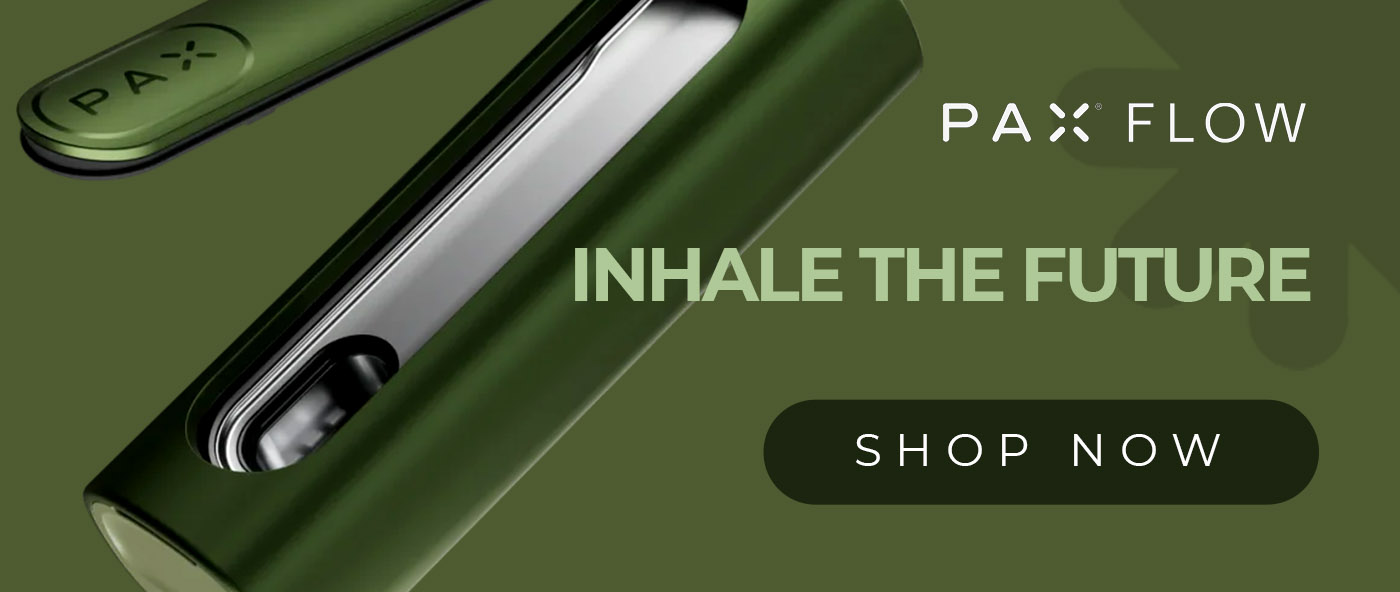Although it may sound cliche as hell, cannabidiol (CBD) has honestly become something of a phenomenon. The hype surrounding it has hit a fever-pitch and everyone wants a piece of the pie.
However, as I’m sure you already know, where there’s hype and an abundance of new products hitting the market every day, there’s also a certain level of confusion and apprehension over which one(s) to actually purchase. Too much choice is a real thing. Pair that with an army of unscrupulous companies coming out of the woodwork to capitalize on the CBD hype and you have a recipe for disaster, especially if you don’t know what to look out for.
This guide will walk you through everything you need to know about purchasing CBD products.
What to look for when purchasing CBD products:
- Hemp-derived CBD is federally legal in 50 states. Marijuana-derived CBD is federally illegal.
- Hemp-derived (particularly hempseed) oil tends to be 20% of the potency of actual CBD oil
- You can purchase a large number of hemp and marijuana-derived products. The most common are oils, edibles, topicals, and capsules.
- Always make sure the company you purchase products from is legitimate. Use its website reviews and social media accounts to find out.
- Check the company has had its products tested by accredited third-party laboratories, credible CBD companies offer a Certificate of Analysis (COA) to confirm quality.
- Make sure the ingredients are all-natural and organic. No artificial ingredients or synthetics should even cross your lips.
- Make sure the THC content is within the legal 0.3% limit (or 0.5% depending on your state).
Is CBD legal in your state?
The legality of CBD and cannabis-derived products is a bit of a head-scratcher. It’s therefore totally worth scoping out the laws governing this plant (with our help of course!).
Hemp-derived CBD is legal on a federal level in all 50 states due to hemp containing below the legal amount of THC (0.3%). It’s easy to find and can be purchased everywhere online — some vape shops and pharmacies stock hemp-derived products as well.
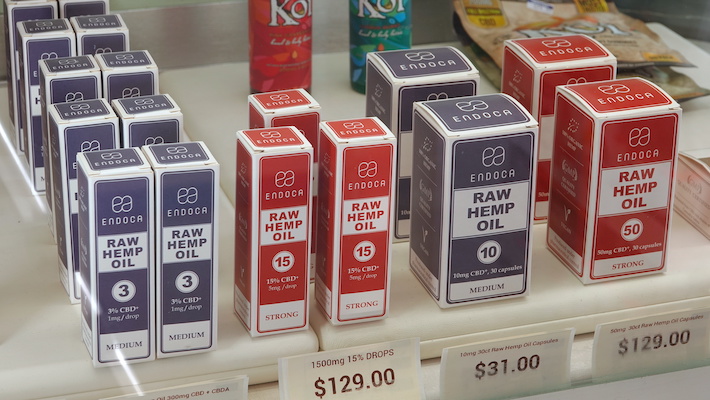
However, if you’re looking to purchase marijuana-derived CBD products with higher levels of THC, they’re legal in 11 US states, as well as Washington D.C.
There are also 34 states that allow the use of medical marijuana, though it’s worth pointing out each state comes with its own restrictions. You can find more information about this on the National Conferences of State Legislatures’ (NCSL) website.
States with legal hemp-derived CBD:
List of 34 states:
- Alaska
- Arizona
- Arkansas
- California
- Colorado
- Connecticut
- Delaware
- District of Columbia
- Florida
- Hawaii
- Illinois
- Louisiana
- Maine
- Maryland
- Massachusetts
- Michigan
- Minnesota
- Missouri
- Montana
- Nevada
- New Hampshire
- New Jersey
- New Mexico
- New York
- North Dakota
- Ohio
- Oklahoma
- Oregon
- Pennsylvania
- Rhode Island
- Utah
- Vermont
- Washington
- West Virginia
Do you mind getting high?
CBD, in itself, won’t get you high. Let’s get that one out of the way. In fact, it’s totally non-intoxicating and won’t impair your judgment. This is why CBD products have become a massive hit with users within the USA and beyond — you get the health benefits of cannabis without getting high as hell.
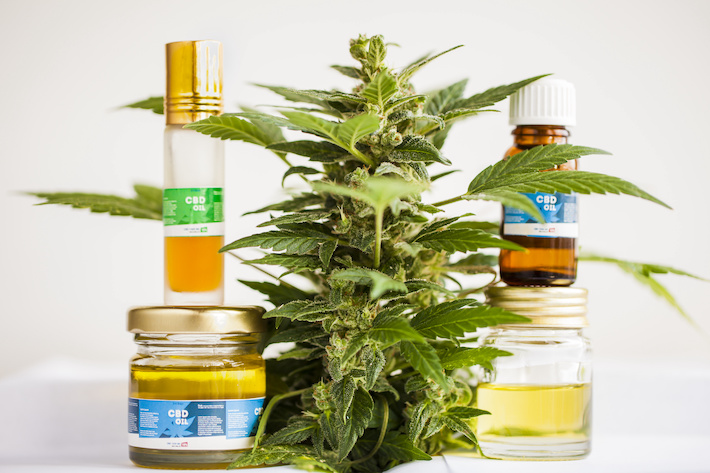
If you have an affinity with not getting baked out of your skull but still want some of the benefits associated with varieties of cannabis, CBD products are actually well worth your time.
CBD oil, typically, hemp-derived CBD products contain less than 0.3% THC — many don’t contain THC at all. This won’t get you high. However, medical marijuana-derived CBD products (with much higher levels of THC) have a solid reputation for getting you baked out of your mind if you consume enough of it.
So, my advice? Make sure you know how to differentiate between hemp-derived and marijuana-derived products, as well as Hemp and CBD oils.
What’s the best way to take CBD? It depends what you need
Not all CBD products are multipurpose. You can’t use a CBD topical orally if you’re suffering from depression and anxiety symptoms. Similarly, you can’t smear a chocolate brownie edible all over your skin to treat acne unless you want to look like an oversized walking cake.
You have to know exactly which CBD delivery method works best for you — there’s no point guessing and hoping for the best.
A. CBD Oils
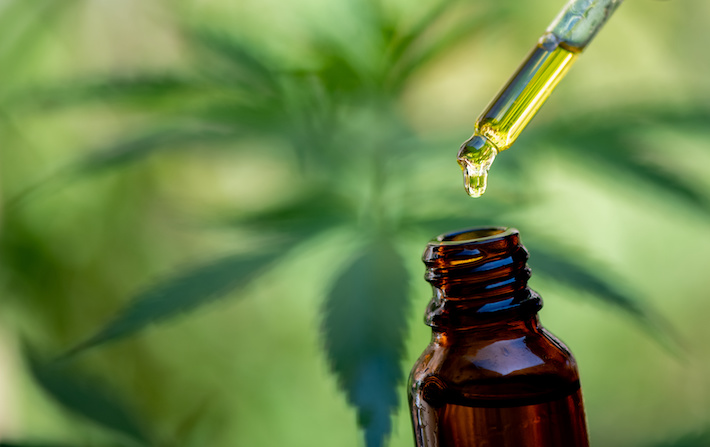
CBD oils are arguably the most popular ways of ingesting CBD. If you take a look at any store (online or in a dispensary), you’ll find a whole stockpile of CBD oils on offer.
But, the question is: Why are they so popular amongst users?
Well, there’s actually a pretty simple answer. They’re easy-to-use and don’t require much thought. All you have to do is place the oil under your tongue, hold it for 15-20 seconds, and swallow.
They’re also potentially very effective at combating multiple symptoms and ailments, which includes:
- Anxiety
- Depression
- PTSD
- Epilepsy & seizures
- Arthritis pain
- Psychotic episodes (linked to schizophrenia)
There’s also research currently underway to see if CBD oil can help with cancer.
When buying CBD oil we always recommend the products are:
- USA grown hemp
- Broad-spectrum or full-spectrum (for the mentioned above)
- Lab tested with COA
- Credible companies with legitimate testimonials
B. CBD Edibles
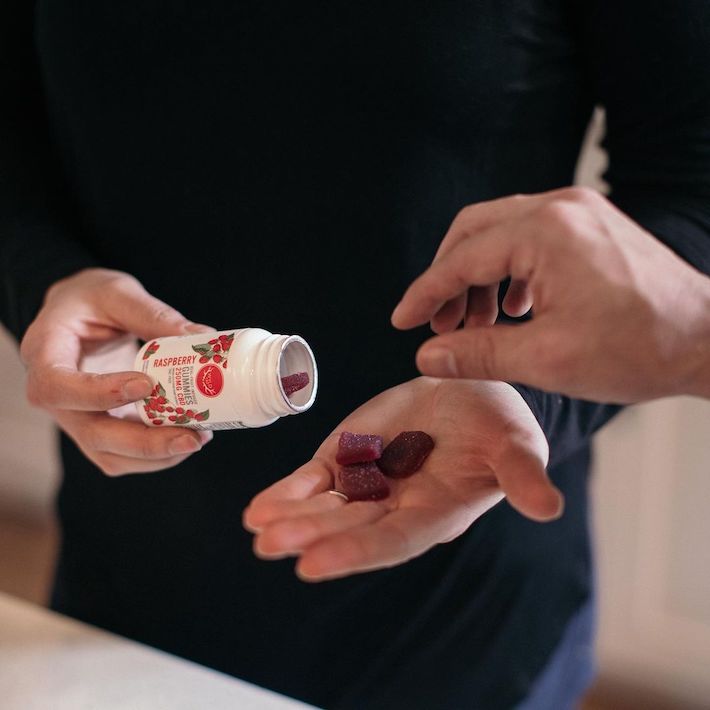
Edibles are another very popular method of consuming CBD. In fact, many users prefer edibles over CBD oils simply because there are so many different options to choose from (as well as some pretty incredible flavors). These options include:
- CBD gummies
- CBD sour candy
- CBD chocolate
- CBD honey sticks
- CBD brownies
The list is actually pretty damned endless. There’s really something for everyone here. If you’re a sweet-toothed maverick with an affinity for some good old cannabinoid consumption, you’re in luck with edibles.
Just be careful, however. Edibles aren’t your favorite candy for you to gorge on in the space of an hour. You still need to dose them the same way you would with oils.
Edibles are definitely more convenient, but they often take much longer to take effect (45 mins – 2hrs) and can be less potent than oils.
C. CBD Topicals
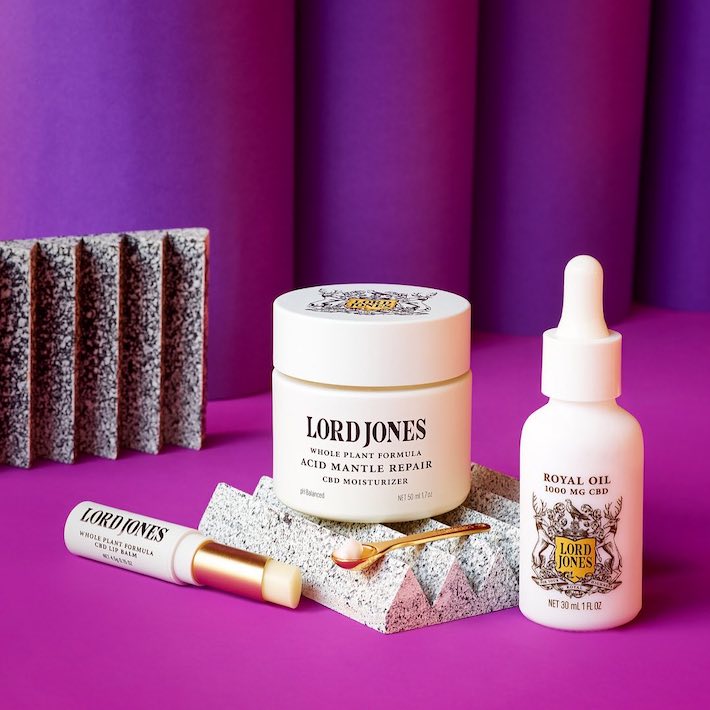
Topicals are a perfect way to target certain areas on (and underneath) the skin. Many users apply CBD topicals to help combat the aches and pains during and after physical exertion, or they incorporate them successfully into a skincare regime.
Because topicals are so, so easy to use, they’ve become a huge success in the CBD market. You don’t need any fiddly equipment as you would with, say, a CBD vape liquid or CBD concentrate made for a dab rig. All you need to do is apply the topical to the skin where the problem area is and you’re all set.
The main types of topicals you can find include:
- CBD cream
- CBD lotion
- CBD balm and salve
- CBD ointment
- CBD massage oils
- CBD skin scrubs
- CBD warming & cooling muscle rubs
- CBD soaps & shampoos
Research has shown CBD topicals may help with a number of different symptoms:
- Skin inflammation & acne
- Pain & inflammation (arthritis)
- Acne, eczema, & psoriasis (not conclusive)
- Myofascial pain
- Chronic pain
Remember: Topicals are not meant for oral consumption. Not only do they taste really bad, but you may also feel quite sick from ingesting them (depending on the chosen product, of course).
What you need to look for before making a purchase
1. Online stores vs medical dispensaries
The difference between online stores and medical dispensaries is down to what’s being sold. Online stores are only allowed to sell only hemp-derived CBD products with little to no THC in them — they’re prohibited from selling marijuana and marijuana-derived products all through the United States. This falls in line with the laws and regulations set out by the Agriculture Improvement Act 2018 (or, rather, the 2018 farm bill).
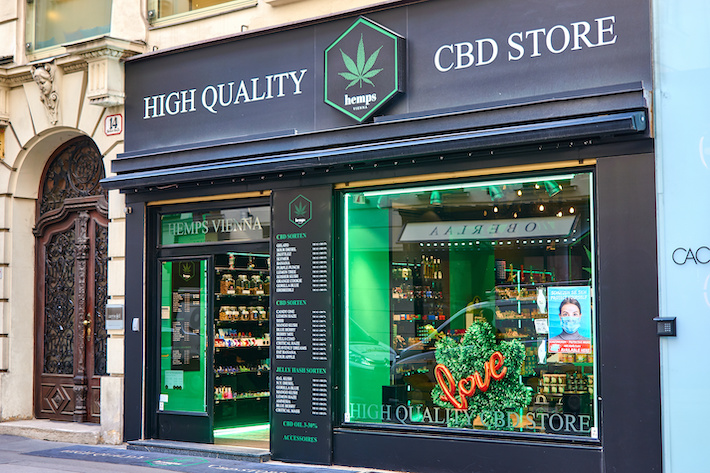
Hemp-derived products you can purchase online:
- CBD oil
- CBD edibles (chocolate, gummies, candy, etc)
- CBD topicals
- CBD capsules/pills
- CBD vape oil/liquid
- CBD concentrates (wax, shatter, etc)
- CBD beauty products
- CBD vape pens
Here are some online stores/companies we recommend:
However, medical dispensaries are allowed to sell both hemp-derived and marijuana-derived products, including marijuana itself (flower, etc). However, this is only allowed in certain states where medical marijuana is either legalized or decriminalized. You won’t find dispensaries in any state where marijuana is illegal at state level.
- Cannabis oil
- High-THC marijuana flower (way above 0.3%)
- THC beverages
- Cannabis gummies
- Cannabis capsules
2. Is the company reputable?
Before you even go and waste your time looking at a CBD company’s products, you’re going to want to make sure the company is credible, reputable, and not some shady scam artist masquerading as legitimate.
As a general rule of thumb, reviews from real customers are a pretty solid way of recognizing a great company from a terrible company. So, in order for you to play CBD detective, I recommend following these steps:
Related: How to Spot Ineffective CBD Products
Step One: Find customer reviews
While customer reviews aren’t a 100% foolproof way of knowing whether the products are of the highest quality, they do give you a pretty good insight into your chosen company, its business practices, and how customers really feel about their purchases.
With reviews it’s also useful to look at what the customer said about the effects and how it helped them (or didn’t). If you’re looking for good sleep and you see 100 reviews saying it helped them catch Zs, you’re probably onto something.
Personally, if I’m purchasing CBD products from a new company or brand, I tend to look at two things:
The company’s own website
Of course, companies (CBD or otherwise) will have a certain level of control over what goes on the website. They’re not going to show 1-star ratings with terrible feedback, but there are a lot of reviews left visible with useful and constructive feedback.
If a company has all 5-star reviews with amazing feedback throughout, it’s probably best to stay slightly cautious. These reviews have probably been heavily filtered. CBD companies aren’t perfect, so don’t base your entire decision on this.
The company’s social media
Social media accounts are actually better at figuring out how people feel about a company and its products. Customers can directly leave their feedback and opinions directly on the page without it needing to be approved — for the most part, at least!
However, again, these social media accounts will most likely be managed by someone, so don’t go expecting it to be an absolute goldmine of varied feedback and opinions. Negative or scathing feedback will probably be removed, though I have seen some companies flex their customer service skills and simply respond to them.
It’s all dependent on which company you choose to investigate.
Warning: don’t trust Trustpilot
I also know Trustpilot is also a source many users look at before purchasing a CBD product but I’d air on the side of caution here. Trustpilot’s reputation has tanked over the last couple of years and for good reason, too.
There are a large number of companies (CBD or otherwise) with a substantial amount of control over which reviews get posted publicly. In other words, they can preemptively hide negative reviews and keep the positive ones up. Not particularly trustworthy, is it?
I would avoid this completely unless you want to be misled.
Step Two: Use online forums
This step is actually overlooked quite often, which sucks because it’s actually one of the best ways to gauge company legitimacy and product quality from the mouths of real users.
I generally go with Reddit — specifically the r/CBD subreddit. The members are very knowledgeable on all things cannabis and have a keen eye for bullshit. Most users are happy to advise you on a CBD/cannabis company and the product(s) it sells. It’s honestly very, very useful.
You also won’t find many covert CBD marketers pretending to be a “regular average Joe user”. That shit gets called out in no time. People are there for unbiased, honest advice from users who have no affiliation with CBD companies.
If Reddit isn’t your thing (blasphemy!), you can also go to dedicated CBD and cannabis forums such as:
Step Three: Ask your buddies
This step might be difficult if you’re the lone CBD user in your friendship group. However, if you’re lucky enough to have a few CBD users close to you (or you’re in a real-life CBD/cannabis community), your best bet is to get feedback from them.
3. Where does the company source its hemp?
Most CBD companies will list where they source their hemp. This has, in fact, become an industry standard. It proves they’re transparent with their customers and are a trusted company within the industry.
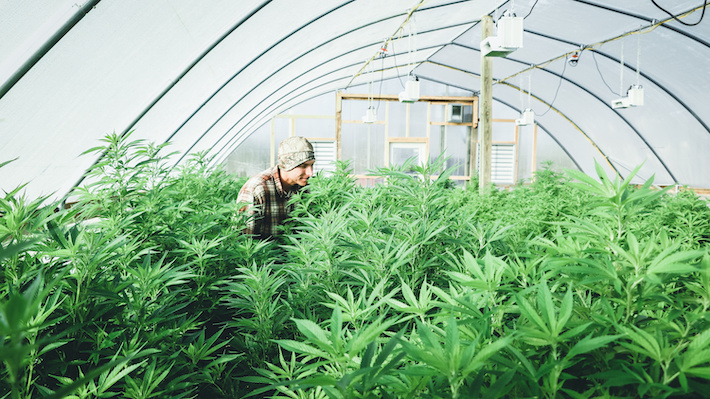
Most companies will either list the country of origin or the country of origin and the specific location/farm.
For example, company A may simply state its hemp is sourced from farms in the United States. I personally believe this is a bit ambiguous and would result in me emailing the company for a specific location or farm.
Company B, on the other hand, may go one step further and state its hemp is sourced from a specific farm in Colorado or California. This would inspire much more confidence in the company and the quality of the hemp.
So, what happens when they don’t list the hemp source?
On a legal level, nothing. Companies don’t have to disclose where they source their hemp — however, it’s an unspoken rule to do so. Again, it builds trust between the company and the customer.
But how do you find out about a company’s hemp source?
Sometimes it’s easy, sometimes it’s difficult, and sometimes it’s impossible.
There are times where a CBD company proudly announces its hemp source, usually on the front page of its website. This typically runs alongside a list of growing practices, the company’s relationship with its farms/growers, and whether or not the hemp is organic.
There are other times where a CBD company keeps this information buried in a FAQ page with little bits of information here and there. This can be quite frustrating and not particularly informative.
However, there are companies that don’t even disclose any of its hemp source information, nor do they outline any details on how the hemp is grown, the relationship they have with farms/growers, or whether the hemp is organic or not.
This is incredibly annoying and usually leads me to assume they obtain the hemp from a wholesale “white-label” supplier for a cheaper price. If this is the case, these companies don’t have much control over the hemp cultivation and manufacturing process from soil to sale.
The best way to find out about a CBD company’s hemp source, particularly if they don’t list it on the website, is to simply email or call a customer service representative. If they don’t disclose the information or are rather vague about the details, assume the company has absolutely no idea and avoid purchasing any of its products.
4. Where does your CBD come from?
There’s no difference between hemp-derived CBD and marijuana-derived CBD. The molecular structure and health benefits are exactly the same. You won’t get high from either no matter where it comes from. The only difference is, CBD sourced from hemp is federally legal and CBD sourced from marijuana is federally illegal.
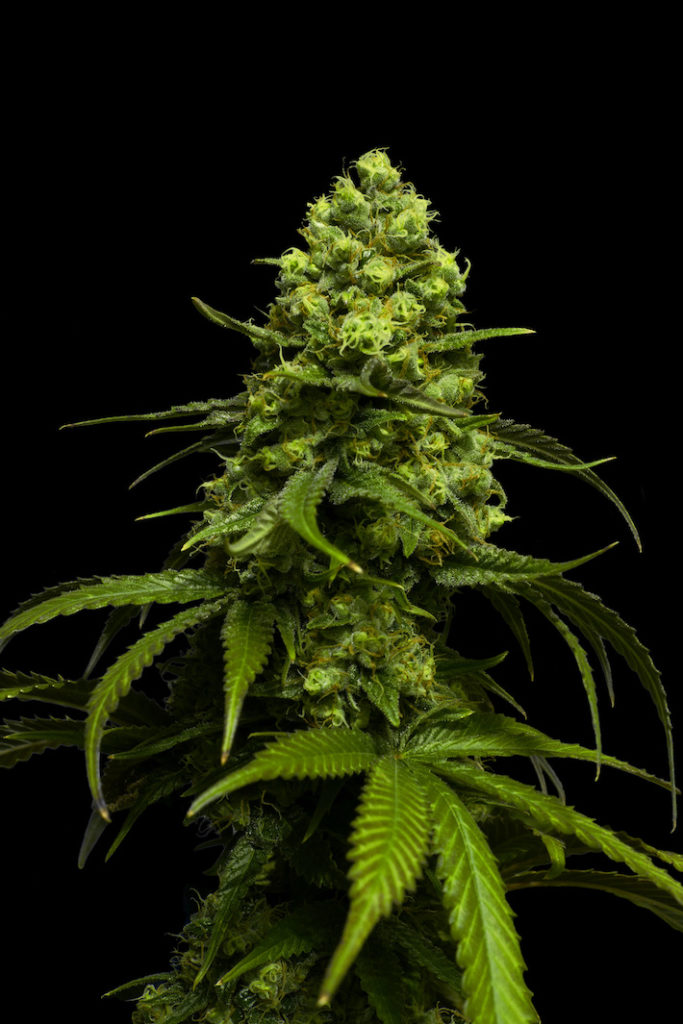
However, if your CBD is sourced from marijuana, there will most likely be a high percentage of THC in the product you purchase. This will get you high. CBD source from hemp, on the other hand, contains far less THC (usually trace amounts that go unnoticed after consumption).
5. You’re best off purchasing a full-spectrum CBD product
Before we dive into this head-first too soon, let’s take a quick look at the three main types of extract found in CBD/cannabis products:
- Isolate
- Broad-spectrum
- Full-spectrum
Isolates are seen as the “lesser” extract, which I agree with to a certain extent. You don’t get any of the other cannabinoids — no THC, no cannabinol (CBN), and no cannabichromene (CBC). Instead, you just get pure CBD (usually 99.9%). Research has shown isolates are pretty ineffective (when consumed) in comparison to full-spectrum extracts, which we’ll cover below.
Broad-spectrum extracts contain a large number of cannabinoids without any THCA present. These are perfect if you’re looking to consume a product with a full range of cannabinoids but dislike the idea of putting THC into your body.
Full-spectrum extracts are commonly seen as the granddaddy of all the extracts — for good reason too. They contain a large number of cannabinoids alongside THC.
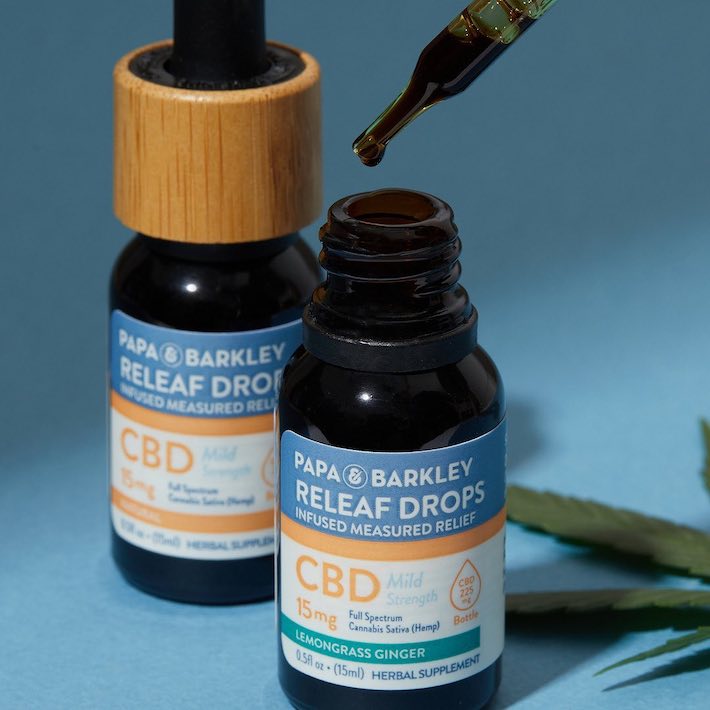
Many believe a full-spectrum product is far more effective because of the number of cannabinoids present in the extract. These cannabinoids are thought to work synergistically within your body, interacting directly with your endocannabinoid system to provide you with a whole range of physical, mental, physiological, and dermatological ailments.
6. Extract method (CO2, solvent, etc)
There are a large number of ways to extract CBD from varieties of cannabis — some ways are better than others. Arguably the safest and most effective way to extract CBD is via the CO2 route.
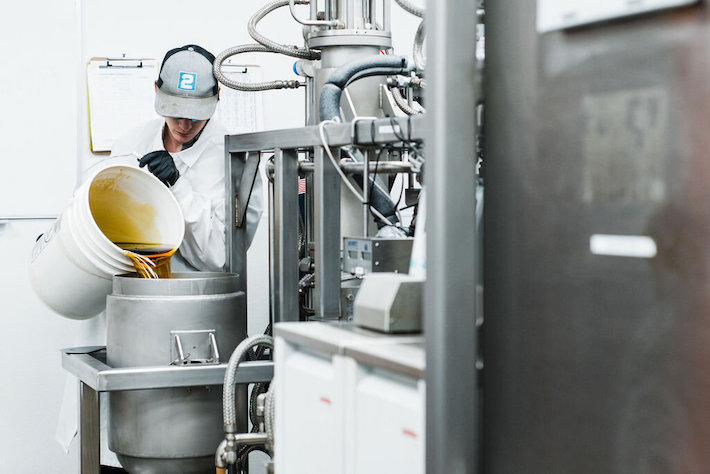
7. Are the products third-party tested?
Certificates of Analysis (COAs) are often referred to as a magnifying glass into the product(s) you’re purchasing. They’re honestly so important. In fact, I’d say they’re the most important thing to look into before you purchase anything.
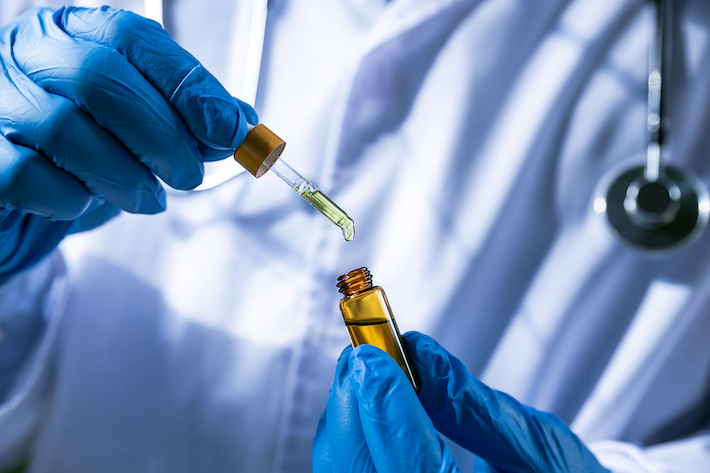
What are COAs exactly?
You may have heard of something called “third-party testing” or a “Third-Party Certification”. The former refers to the act of having the CBD extract/product tested by an accredited, independent laboratory. The latter refers to the documentation produced after the testing has occurred. This document is otherwise known as a COA.
What is an accredited laboratory?
Remember I talked about shady and unscrupulous companies? Well, you get some pretty shitty, unethical “laboratories” too. These terrible laboratories typically have no idea how to test cannabis extracts. If a company uses an unaccredited laboratory, chances are the COAs will be dodgy, doctored, and wildly inaccurate.
This is something I never want to see.
To know if a laboratory is legitimate and does what it should be doing (which is to properly test cannabis and hemp-derived products), it should be accredited in line with the rules, regulations, and guidance set out by the International Organization for Standardization (ISO).
Here are a few accredited CBD/hemp laboratories for your reference:
Note: COAs should never be produced by manufacturers or the CBD company/brand itself.
What do laboratories test for?
Laboratories test for three main things:
- Cannabinoid Profile (the percentage/amount of cannabinoids in the product)
- Terpene Profile (the percentage/amount of terpenes in the product)
- Heavy metals (lead, mercury, arsenic, cadmium)
- Volatile Organic Compounds (VOC) (residual solvent testing for extracts created with hydrocarbon or organic solvents)
- Biological contaminants (mold, fungi, etc)
In my experience, not all companies test for everything on this list. In fact, I don’t see tests for heavy metals, solvents, or biological contaminants all that often. Most of the time, you’ll find the Cannabinoid Profile and perhaps the Terpene Profile.
Where do you find COAs?
You typically find COAs on the company’s website — either listed on a dedicated webpage or as a link in (or around) the product description. You’ll also commonly find QR codes on the product packaging, which can be scanned using your smartphone. This will take you to the dedicated COA page.
As we’ll discover below, some companies choose not to publicly display their COAs for a number of reasons.
What should you do if a COA is not publicly-available?
Sometimes it’s easy to assume a company without COAs is shady. I fall into this trap all the time. However, there are times when a non-publicly visible COA doesn’t mean it hasn’t been produced.
If the company does mention COAs on its website but aren’t visible, you can always reach out to them via email or phone and request to see them. Many of them will oblige and send them right away. A lot of the time, your product will come with copies of the COAs as well.
If a company doesn’t send them or won’t respond to you, I’d steer clear altogether. This shows a distinct lack of commitment to your consumer needs — you can also rightfully assume they don’t have any for you to see.
8. What ingredients are used in the formula?
I’m sure you’ve looked at the back of a food package and look at the ingredients to make sure you want to put it into your body. Well, you have to do the same with CBD products.
Related: What You Need to Avoid When Buying CBD
Some companies really like to go the almost pretentious route and name the ingredients by their botanical or Latin names. This isn’t helpful in the slightest, especially if you don’t know about (or care for) the proper scientific names.
However, the good thing about this is you’ll be forced to do a forensic Google search of each ingredient to see if they’re actually quite shitty or they’re really well put together. I honestly recommend avoiding anything artificial. Make sure the ingredients are all-natural and organic.
9. How much THC is in your product?
This is something you really need to watch out for.
As I explained above, THC is federally illegal. Only 11 states (and D.C.) deem recreational THC use legal and 34 states allow medical marijuana use. Therefore, it’s worth knowing how much THC is in your product.
This where the aforementioned COAs are useful. They show how much THC is in the product you’re purchasing. Just look at the Cannabinoid Profile and search for the THC content. If it’s below 0.3% (0.5% in some states), you’re all good. If it’s above that, you’re looking at a product that’s potentially illegal to possess.
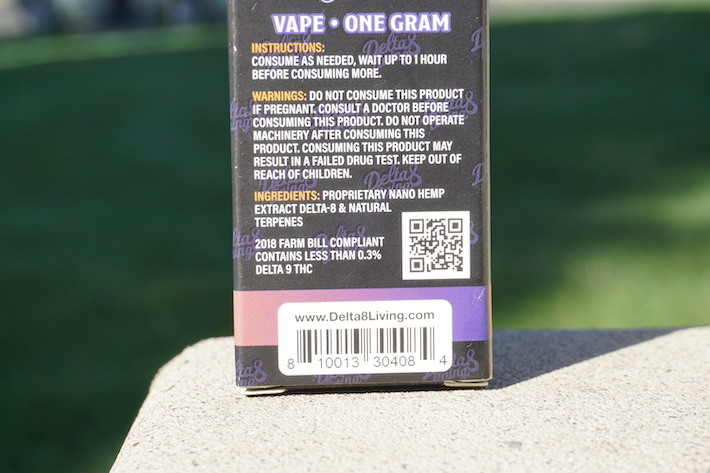
Also, not everyone wants high levels of THC flowing through their bodies, and they certainly don’t want it to be unexpected. So, again, always check the COA and the label. For instance, if you’re searching for a CBD oil but you choose a cannabis oil instead, you’re going to be in for one hell of a ride.
Again, I reiterate, always check the COA and, of course, the label.
Always approach purchasing CBD products with a hint of curiosity and caution
As I’ve already highlighted, the CBD industry is fraught with unscrupulous companies looking to capitalize on the hype. I’ve seen a staggering number of companies falling way below the average in terms of basic industry standards and safety practices.
It’s becoming all too common and it’s very uncomfortable to watch, particularly when I know people fall for this nonsense on a daily basis.
To counteract this, you should always approach every CBD company with a hint of caution, no matter how legitimate you think they are. A snazzy website filled with perfectly curated high-res photos and designs doesn’t make up for the empty promises they sometimes make.
Right now, it’s a revolutionary act to question the motives of these companies, so make sure to keep this guide bookmarked for when you next decide to check out a CBD company.
I don’t want you to be scammed out of your hard-earned money.
